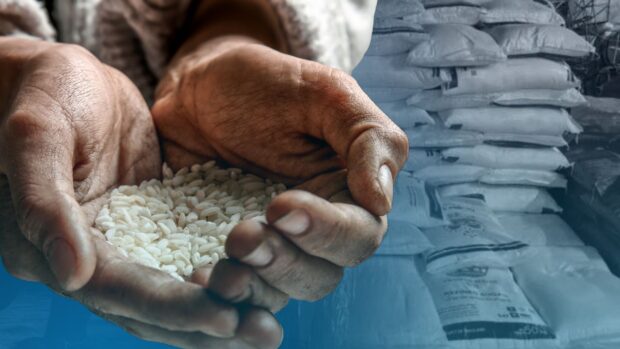Planned gov’t-to-gov’t rice importation bucked
A Makabayan lawmaker on Tuesday opposed President Marcos’ proposal for government-to-government rice importation, arguing that he should boost the local rice industry instead.
House Assistant Minority Leader Rep. Arlene Brosas said the government should “invest in our farmers and prioritize their welfare to achieve food security and agricultural self-sufficiency.”
“We urge Mr. Marcos to veer away from his proposed government-to-government importation of rice and instead focus on strengthening our local rice industry,” she said in a statement.
The Gabriela Women’s party list representative noted that the current shortage of rice stocks should be addressed, but “the solution lies in supporting our local farmers and improving our domestic rice production.”
Brosas called for the repeal of Republic Act No. 11203, or the Rice Tariffication Law and the prioritization of the Philippine rice industry instead.
Article continues after this advertisement“The increasing prices of rice and dwindling of stocks is proof that RA 11203 was never the solution in the first place as it allowed the influx of imported rice and consequently depressed the farm gate prices of palay,” Brosas added.
Article continues after this advertisementShe made the remarks after Agriculture Assistant Secretary Rex Estoperez said the President will preside over an interagency meeting to discuss the government-to-government importation of rice.
Under RA 11203, Mr. Marcos is authorized to approve government rice importation during emergencies.
‘Food security at risk’
The President earlier said he was considering importing rice from India.
Brosas warned that dependence on rice imports “puts our food security at risk and undermines the livelihoods of our local farmers.”
“We need sustainable and long-term solutions that prioritize self-sufficiency and agricultural development,” she said.
For House Deputy Speaker Rep. Ralph Recto, the importation of rice when local production slows down “is not as straightforward anymore due to convulsions in the world market.”
“It’s not easy to order unli-rice over the globe. Other nations only let go of their surplus production because their priority is local demand,” Recto said in a separate statement.
He noted that India, the number one rice exporter with a 40 percent share of the world market, has imposed a ban on the export of non-Basmati rice.
“You don’t need a Nobel to sagely predict that it will have a ripple effect on all grain prices considering the big hole it will cause,” he said.
Recto warned that the Philippines might be hit “directly and painfully” by Vietnam’s decision to slash its annual rice exports to 4 million tons by 2030 from 7.1 million tons last year.
He noted that the Philippines sourced 2.5 million metric tons or 85 percent of its rice imports from Vietnam in 2021. INQ
